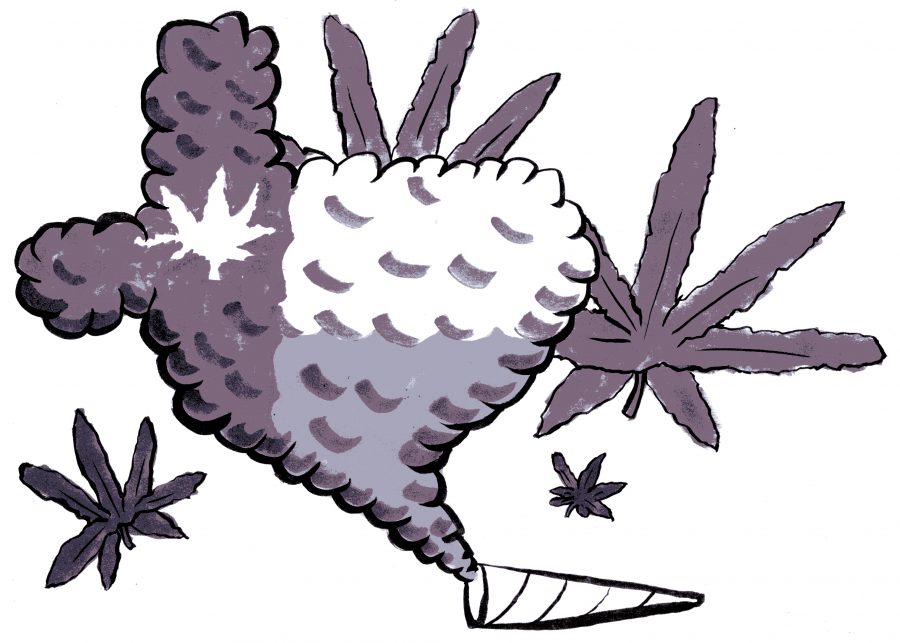As I’m sure most of my fellow students would be shocked to discover, this Wednesday is sort of an unofficial holiday for millions of cannabis users. And when one considers the favorable public opinion regarding marijuana legalization, American stoners will certainly have much to celebrate.
Since the end of cannabis prohibition is beginning to look inevitable, it’s time to consider what happens after legalization. Specifically, we should learn from past experiences with big pharma and big tobacco by limiting the production, distribution and sale of marijuana in a way that works for average cannabis users and small business owners, rather than a handful of large corporations.
Americans love drugs, and not just theillegal kind. Over half of Americans consumed alcohol in the last month, 16.8 percent smoke tobacco daily, and a whopping three out of five Americans take at least one prescription drug. This list doesn’t even include caffeine, which is by far the world’s most popular recreational drug. Our fascination with psychoactive substances isn’t uniquely American or even particularly new. Prostitution might be the world’s oldest profession, but drug dealing probably wasn’t far behind.
What is relatively new, however, is the ability of large corporations to lobby for and market drugs in potentially disastrous ways. In the recent past, the tobacco industry created a public health nightmare when they systematically misled the public and lobbied against the government regulation for decades. Today, America is one of only two countries on the planet that allows pharmaceutical companies to advertise drugs directly to consumers. It’s not surprising that the pharmaceutical industry is ludicrously profitable, prescription painkiller addiction has skyrocketed and drug overdoses are reaching epidemic proportions.
To manage public health risks, states like Texas that are currently considering legalization should follow Colorado’s example of allowing individuals to grow, sell and consume marijuana in relatively small quantities while restricting industrial scale operations that cross state lines. This more nuanced approach could kill an entire flock of birds with one stone. First, allowing entrepreneurs to realistically compete with much larger firms would encourage small business growth that would directly benefit local communities. Second, it would greatly reduce the risk that a handful of companies could accumulate enough power to stifle competition or exert undue influence on public health policy. And finally, average cannabis users would still be free to grow, purchase or consume more than enough marijuana for their own personal use.
Even in these early stages, legal marijuana is already a multi-billion dollar industry. It’s naive to think profit driven corporations would pass up such a potentially lucrative business opportunity. Companies seeking to capitalize on the legalization of marijuana aren’t evil. In fact, we should actively encourage their entrepreneurship. But we should also take steps to prevent a “Big Cannabis” industry from gathering excessive clout which it could use in dangerous ways. Marijuana is already far safer than alcohol, tobacco and many other legal drugs. By preemptively enacting a few common sense regulations, we could make the marijuana industry far safer as well.
Jensen is a neuroscience junior from The Woodlands. Follow him on Twitter @michaeltangible.





















